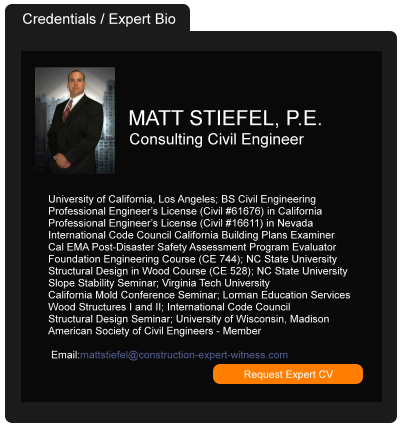An Obligation to Provide Notice and an Opportunity to Cure May not End after Termination, and Why an Early Offer of Settlement Should Be Considered on Public Works Contracts
August 17, 2020 —
Jeff Kaatz - Ahlers Cressman & SleightIn 2015, the City of Puyallup (“City”) and Conway Construction Company (“Conway”) executed a public works contract for road improvements (“Project”). On March 9, 2016, approximately four months after work started on the Project, the City issued Conway a notice of suspension and breach of contract and identified nine defective and uncorrected work and safety concerns. Conway denied any wrongdoing, and on March 25, 2016, the City issued a notice of termination for default and withheld payments due to Conway.
Conway subsequently filed suit in Pierce County Superior Court and alleged the City’s termination for default breached the contract and sought a determination that the City’s termination for default was improper and should be deemed a termination for convenience. Conway sought approximately $1.25 million in damages and recovery of its attorney fees and costs. Following a bench trial, the Trial Court found the City breached the contract and awarded Conway damages, attorney fees, and costs. The City appealed.[1]
On appeal, after affirming the trial court’s determination that the City improperly terminated Conway, the Court of Appeals considered two other issues raised by the City. First, whether the City was entitled to a set-off for replacing defective work discovered after Conway was terminated. Second, whether Conway is entitled to attorney fees if it did not make the statutorily required offer of settlement per RCW 39.04.240.
Read the court decisionRead the full story...Reprinted courtesy of
Jeff Kaatz, Ahlers Cressman & SleightMr. Kaatz may be contacted at
Jeff.Kaatz@acslawyers.com
Arizona Supreme Court Confirms a Prevailing Homeowner Can Recover Fees on Implied Warranty Claims
November 21, 2017 —
Rick Erickson - Snell & Wilmer Real Estate Litigation BlogOriginally published by CDJ on August 30, 2017
On August 9th, in Sirrah Enterprises, L.L.C. v. Wunderlich, the Arizona Supreme Court settled the question about recovery of attorneys’ fees after prevailing on implied warranty claims against a residential contractor. The simple answer is, yes, a homeowner who prevails on the merits can recover the fees they spent to prove that shoddy construction breached the implied warranty of workmanship and habitability. Why? Because, as Justice Timmer articulated, “[t]he implied warranty is a contract term.” Although implied, the warranty is legally part of the written agreement in which “a residential builder warrants that its work is performed in a workmanlike manner and that the structure is habitable.”
In other words, a claim based on the implied warranty not only arises out of the contract, the claim is actually based on a contract term. Since, in A.R.S. § 12-341.01, Arizona law provides for prevailing parties to recover their fees on claims “arising out of contract” and because the implied warranty is now viewed by the courts as a contract term, homeowners can recover their fees after successfully proving breach of the implied warranty.
Read the court decisionRead the full story...Reprinted courtesy of
Rick Erickson, Snell & WilmerMr Erickson may be contacted at
rerickson@swlaw.com
Fire Consultants Cannot Base Opinions on Speculation
May 20, 2019 —
Christopher Konzelmann - The Subrogation StrategistLarsen v. 401 Main St. Inc., 302 Neb. 454 (2019), involved a fire originating in the basement of the Quart House Pub (Pub) in Plattsmouth, Nebraska that spread to and damaged Plattsmouth Chiropractic Center, Inc., a neighboring business. Fire investigators could not enter the building because the structure was unsafe and demolished. The chiropractic center nevertheless sued the Pub alleging that its failure to maintain and replace basement mechanical equipment caused ignition.
To prove its claim, the plaintiff retained a mechanical engineer who reviewed documents and concluded that the fire “originated from a failure of one of the items of mechanical equipment located in the area of the [basement] boiler.” Importantly, however, the consultant could not determine the root cause of the fire, could not eliminate the possibility that the fire originated in a compressor, and could not rule out the building’s electrical service as the ignition source because it was outside his area of expertise. The consultant nevertheless found that the fire most likely would not have occurred if the Pub had regularly serviced and replaced the equipment when needed.
Read the court decisionRead the full story...Reprinted courtesy of
Christopher Konzelmann, White and Williams LLPMr. Konzelmann may be contacted at
konzelmannc@whiteandwilliams.com
Insuring Lease/Leaseback Projects
August 19, 2024 —
David G. Jordan & Jeffrey J. Vita - Saxe Doernberger & Vita, P.C.Overview
Several states utilize a unique statutory mechanism to allow school districts to finance the construction of public-school facilities. This arrangement (known as a “lease-leaseback agreement”) allows a school district to lease property to a contractor/developer, who then constructs or renovates a school facility on the property. Once the work is completed, the contractor/developer leases the school building back to the school district. The school district then makes lease payments over time, often many years, which can be structured in various ways to spread out the cost of construction. The arrangement typically requires a site lease for the land leased to the contractor/developer, a facilities lease for the lease-back of the school building to the school district and a traditional construction agreement. In some ways, the arrangement resembles a Public-Private Partnership (PPP) whereby a public entity collaborates with a private entity for the purpose of financing and delivering a project traditionally provided solely by the public sector.
Reprinted courtesy of
David G. Jordan, Saxe Doernberger & Vita, P.C. and
Jeffrey J. Vita, Saxe Doernberger & Vita, P.C.
Mr. Jordan may be contacted at DJordan@sdvlaw.com
Mr. Vita may be contacted at JVita@sdvlaw.com
Read the court decisionRead the full story...Reprinted courtesy of
Real Estate & Construction News Roundup (4/24/24) – Omni Hotels Hit with Cyberattack, Wisconsin’s Low-Interest Loans for Home Construction, and Luxury Real Estate Sales Increase
May 20, 2024 —
Pillsbury's Construction & Real Estate Law Team - Gravel2Gavel Construction & Real Estate Law BlogIn our latest roundup, alternative lenders take the lead in CRE loans, construction workers worry about artificial intelligence, prospective homeowners express concerns about climate risks, and more!
- Even as overall real estate sales fell 4% nationwide in the first quarter, luxury real estate sales increased more than 2%, posting their best year-over-year gains in three years. (Robert Frank, CNBC)
- As many banks cut back from commercial real estate loans amid rising interest rates and a regional banking crisis that exploded in early 2023, a number of alternative lenders jumped in to lead the way. (Andrew Coen, Commercial Observer)
- Workers in construction and other industries are worried about artificial intelligence, and it’s keeping their companies from moving forward more decisively with the surging technology. (Matthew Thibault, Construction Dive)
Read the court decisionRead the full story...Reprinted courtesy of
Pillsbury's Construction & Real Estate Law Team
The Legal Landscape
June 17, 2024 —
David McMillin - Construction ExecutiveThe construction industry continues to change as new technologies reshape jobsites and new generations of leaders rethink the way companies should operate. But one piece of the puzzle remains very much the same: Everyone needs a good lawyer.
According to the most recent edition of the Arcadis Construction Disputes Report, the average value of a dispute in the industry has soared to $42.8 million—a 42% year-over-year increase between 2021 and 2022. And based on how busy the attorneys at
Construction Executive’s 2024 Top 50 Construction Law Firmshave been this year, there is no sign of legal issues becoming less important to builders and contractors.
Every construction leader wants to spend more time and energy doing what they do best—building projects safely, efficiently and profitably—and less time thinking about the things that might land them in court. How can you best avoid big disputes bound for mediation, arbitration or litigation? What emerging rules and regulations should be on your radar as you develop strategies for success?
While legal issues will never disappear, listening to what some of the best construction lawyers in the country—all members of 2024 Top 50 Construction Law Firms—are thinking about offers a helpful perspective on future-proofing your business against risk, liability and worse.
Reprinted courtesy of
David McMillin, Construction Executive, a publication of Associated Builders and Contractors. All rights reserved.
Read the court decisionRead the full story...Reprinted courtesy of
Five Pointers for Enforcing a Non-Compete Agreement in Texas
June 08, 2020 —
Kristopher M. Stockberger - The Grindstone Lewis Brisbois' Labor & Employment Blog1. The Devil’s in the Details
Under Texas law, for a non-compete agreement to be enforceable, it must meet strict requirements as to timing, geography, and the type of conduct that it prohibits. While courts have enforced agreements for between one and two years, your situation could be subject to a shorter time period. If the geographical scope of the agreement is too broad or vague, that could render the agreement unenforceable. Also, the type of conduct prohibited by your agreement should be tied to the specifics of your business, because categorical barriers to other employment are often not enforced. If an employer knowingly instructs an employee to enter an overbroad non-compete agreement, the employer runs the risk of paying the employee’s attorneys’ fees.
2. Timing on the Front End
If an employee has been with an employer for years and the employer suddenly decides to have her sign a non-compete without any other meaningful change in the employee’s role, then the agreement will probably not be enforceable, unless the employee receives “consideration.” In this context, consideration is something of value, other than money or benefits, which the law deems to warrant protection by a non-compete agreement. For example, allowing an employee to learn the secret formula to Coca-Cola or to gain access to an employer’s confidential financials constitutes legally sufficient consideration given to an employee in exchange for the employee’s promises in a non-compete agreement.
Read the court decisionRead the full story...Reprinted courtesy of
Kristopher M. Stockberger, Lewis BrisboisMr. Stockberger may be contacted at
Kris.Stockberger@lewisbrisbois.com
Firm Claims Construction Defects in Hawaiian Homes
December 04, 2013 —
CDJ STAFFThe Los Angeles law firm Girardi Keese has filed a lawsuit representing 10,000 homeowners in Hawaii. The class action suit claims that construction defects have left the homes unable to withstand the island’s winds. Graham B. LippSmith, who represents the homeowners said that “we’re seeing some homes where the straps have cracked all the way through, so there’s nothing holding the frame to the foundation.” Mr. LippSmith said that the developer should have used anchor bolts instead of hurricane straps, but “that would have cost more money.”
Mr. LippSmith says that his goal is to get the homes fixed. “It doesn’t do any good to give someone $50,000 and tell them go have their home fixed when what the community needs is to be made safe for the residents.”
Read the court decisionRead the full story...Reprinted courtesy of


































































